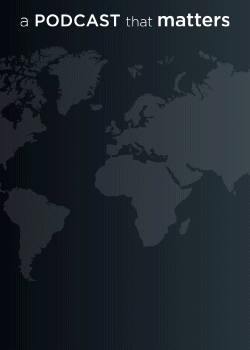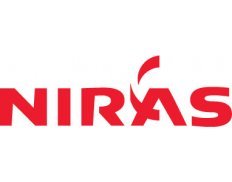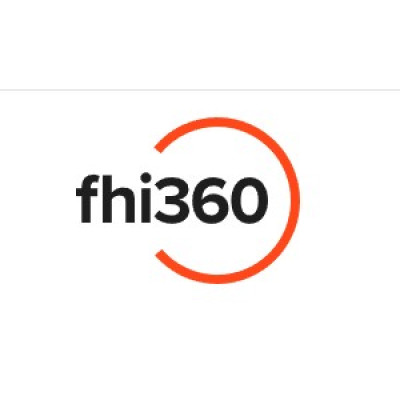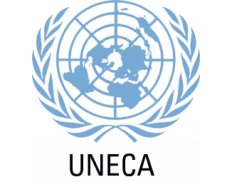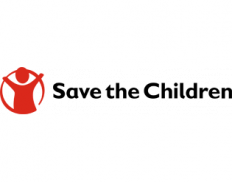Details
Description
Background
The Community-led Accelerated WASH (COWASH) project is a bilateral project between the Government of Finland (GoF) and the Government of Ethiopia (GoE) which commenced in 2011 and initially focused on the rural sector in Amhara, Benishangul-Gumuz, Oromia, Southern Nations Nationalities and Peoples and Tigray Regions of Ethiopia. The first phase was implemented from 2011 to 2014, the second phase from 2014 to 2016 and the third phase from 2016 to July 2021. These first three phases of COWASH provided rural communities with over 19,000 water points, institutional facilities and rehabilitated schemes benefiting almost five million rural inhabitants.
COWASH IV is building on the work of the three earlier phases of COWASH and focuses on the achievement of targets through the establishment of an enabling environment and the implementation of community managed project (CMP) interventions. Compared to the previous phases, COWASH IV is working in an expanded project area and now covers 104 Woredas in 34 zones of seven Ethiopian Administrative Regions (Amhara, Benishangul-Gumuz, Oromia, Sidama, Southern Nations Nationalities and Peoples, South-west Ethiopia Peoples and Tigray). It should however be noted that the Southern Nations Nationalities and Peoples Region was officially divided into the Southern Ethiopia and Central Ethiopia Regions on 05 August 2023. It is understood that both new regions will continue to be part of the COWASH IV project although it will take several months before the required memoranda of agreement are in place.
COWASH IV is supporting the achievement of the GoE’s Ten-year Development Plan (2021-2030) and is being conducted under the umbrella of the country’s One WASH National Program. The overarching goal of COWASH IV is to improve public health and well-being, social development and climate resilience in the communities of the project area. The objective is increased and sustained coverage of safe water supply, sanitation and hygiene in the rural areas of the selected woredas and has a target of 1.1 million beneficiaries. The COWASH IV project runs from 01 April 2021 to 31 December 2024 with NIRAS Finland Oy providing technical assistance services for the project through the Federal Technical Assistance Team (FTAT) based in Addis Ababa.
The governing Project Document signed between the GoF and GoE outlines the five key outcomes of COWASH IV as follows:
• Outcome 1: “Increased and sustained access to safe climate resilient community water supplies in the rural areas of project woredas”
• Outcome 2: “Increased access to and usage of improved household latrines and increased practice of handwashing with soap in the COWASH IV water supply beneficiary households of project woredas”
• Outcome 3: “Improved institutional WASH by narrowing the gap in improved institutional latrines, climate resilient and safe water supply and menstrual hygiene management (MHM)”
• Outcome 4: “Sustainability and inclusivity of achieved WASH outcomes enhanced”
• Outcome 5: “COWASH IV implementation effectively managed, lessons learnt, documented, communicated and shared and put into action”
The COWASH IV Approach
The essence and key operating philosophy of COWASH IV is the empowerment of the rural communities of Ethiopia to develop their own WASH facilities through the establishment of an enabling environment and the implementation of CMP interventions. Under COWASH IV, rural communities apply for support and are trained to design, implement, operate and maintain their own WASH facilities.
All work is jointly financed by the GoE, through the regional budgets, and the GoF working through the Channel 1 Directorate of the Ministry of Finance. While the Ethiopian funds are primarily focused on the construction of community WASH facilities, the Finnish support is focused on human and physical capacity development together with the construction of school and health institution WASH facilities. The communities are expected to contribute to the project but normally through in-kind contributions such as materials or labour.
The key process in the implementation of COWASH IV is the cascading of training and knowledge whereby the central FTAT firstly provides training to Regional Support Units based in each project region. The Regional Support Units in turn train specialists in the zones and woredas and they cascade the key information down to kebele and community levels.
The training and knowledge sharing process is supported by a comprehensive library of manuals, guidelines and strategy documents prepared by the FTAT for use in the implementation of the COWASH IV project and covers a broad range of topics including financial management and procurement, investment via both the Woreda Finance Offices and micro finance institutions, CMP implementation, institutional WASH, water safety planning, social, environment, climate risk screening management, Water, Sanitation and Hygiene Committee (WASHCO) procurement, gender transformative and disability inclusion, saving and loan association formulation and operation, social and behavioural change, artisans training, water quality testing, roles and responsibilities of stakeholders and project administration and implementation.
Project progress is monitored through an on-line database completed at woreda level with oversight from both the Regional Support Units and the FTAT.
COWASH IV Implementation
The overarching responsibility for COWASH IV lies with the two appointed Competent authorities: the Federal Democratic Republic of Ethiopia Ministry of Finance and the Ministry of Foreign Affairs of Finland as represented by the Embassy of Finland.
COWASH IV is implemented at Federal level by the Ministry of Water and Energy (MoWE) in coordination with the Ministry of Education and the Ministry of Health. At the regional level, the project is implemented by the Water Resources Development Bureaus of Amhara, Benishangul-Gumuz, Oromia, Sidama, Southern Nations Nationalities and Peoples, South-west Ethiopia Peoples and Tigray National Regional States in association with regional WASH partners including the Bureaus of Health, Bureaus of Education, Bureaus of Finance and Bureaus of Women Affairs. To facilitate the smooth running of the project, steering committees and WASH technical teams have been established at the National, Regional, Zone and Woreda levels.
At the heart of the project, is the FTAT. Based in the MoWE in Addis Ababa, the FTAT provides the support needed to implement all aspects of the project in an efficient and cost-effective manner. In line with the provisions of the Project Document the FTAT leads the training and knowledge sharing process with particular reference to:
• The implementation of the CMP process including the setting up of the all-important Water, Sanitation and Hygiene Committees, scheme design, construction and management and financial control;
• The adoption of gender and disability inclusion policies and practices with a focus on promoting women leadership in WASH management;
• The promotion of social and behaviour change and the importance of good WASH practices for the benefit of the communities;
• The sharing of knowledge with all stakeholders and the use of social media for the promotion of public health and community wellbeing;
• The approach to climate change mitigation and the adoption of good practices to ensure the long-term sustainability of the facilities constructed under the project;
• The development of household sanitation through support for micro and small enterprises and the development of community level saving and loan associations; and
• The formulation of the COWASH IV Results Framework and the need for accurate and timely reporting of work progress.
The CMP approach is generally considered by WASH sector stakeholders in Ethiopia to be the most effective and sustainable rural WASH implementation methodology due to the strong community ownership of the process. As such the CMP approach represents one of the most viable options for advancing rural WASH in Ethiopia which is badly lagging behind the Sustainable Development Goals.
Overview of the Role of the WASH Innovation Specialist
For COWASH IV a number of new elements were introduced compared to the previous phases and were designed to improve project performance and improve sustainability. These measures included:
• Water Safety Planning incorporating the Social, Environmental, Climate Risks Screening and Management process;
• Water quality monitoring;
• Market-based sanitation;
• WASH Saving and Loan Associations;
• Social and behavioral change;
• Menstrual hygiene management piloting in schools; and
• Integrated water supply and sanitation.
However, despite significant capacity building work having been carried out during the course of COWASH IV to date, the above measures have not yet been fully mainstreamed into the day-to-day work of the regional water bureaus, zone and woreda water offices.
The first key task of the WASH Innovation Specialist is to assess the progress made for each initiative, identify the barriers to their mainstreaming and recommend measures for improvement.
The second key task of the Specialist is to identify and design additional innovative measures that could be introduced with a view to improving project performance and advancing the achievement of the development of the rural WASH sector in Ethiopia.
Detailed Tasks
The WASH Innovation Specialist will conduct the following tasks:
• Review and prepare a report on the progress of the new elements introduced under COWASH IV;
• Hold detailed discussions with selected key stakeholders at federal and regional level to determine their attitudes and willingness to adopt the measures;
• Identify the barriers to the mainstreaming of the work elements and make recommendations for improving their uptake;
• Identify and design additional innovative measures that could be introduced. These measures could relate to any aspect of COWASH IV including for example facility design, construction, operation and maintenance, business models, awareness raising and performance monitoring and evaluation;
• The Specialist will pay particular attention to introducing innovative measures to support the development of household sanitation;
• Working with the support of the FTAT, hold a series of workshops and seminars in all regions to advocate the adoption of the innovative measures;
• Identify additional training needs and prepare an appropriate capacity development program;
• Attend and present at the COWASH IV Regional Support Unit Knowledge Sharing Event to be held in late October/early November 2023. The Specialist will present on innovative technology and implementation approaches which could be adopted to improve COWASH IV project performance.
Inputs
The WASH Innovation Specialist will have a total input of 2.8 months.
All project inputs will take place in Ethiopia. The Specialist will be based in the FTAT office in the MoWE in Addis Ababa and will undertake frequent travel to the Project Regions as dictated by the work requirements.
The input will take place over a single in-county period of 2.8 months from early October to late December 2023.
The Specialist will report to the Chief Technical Advisor and will work closely with all members of the FTAT on a daily basis.
Note that there is another ST consultancy also open in COWASH IV on CMP Implementation (5 months). These two consultancies could be combined.
Qualifications required:
• Substantial experience in the design and implementation of WASH development projects; • Extensive experience in the design and implementation of capacity development programs; • An understanding of the Ethiopian WASH sector and its key actors would be an advantage; • Excellent communication skills; • The ability to work and communicate in an environment with multiple diverse cultures; • Good report writing skills; and • Fluency in English with excellent writing skills.
Professional experience required:
Masters degree in a relevant field
Position length:
>Temporary and consultancy opportunities
Position length:
2,8 months.

